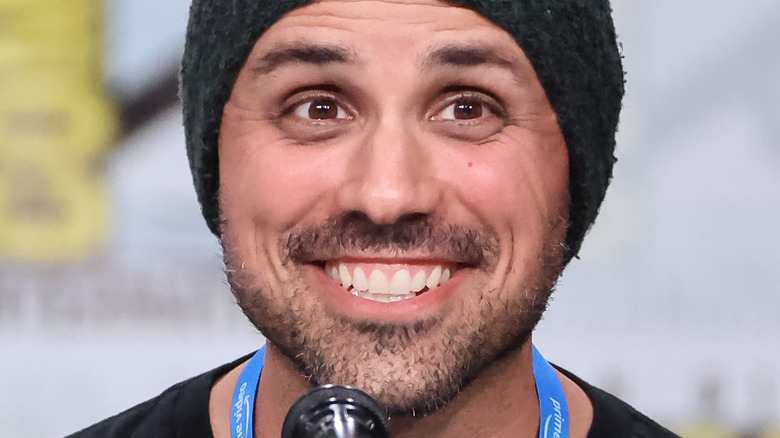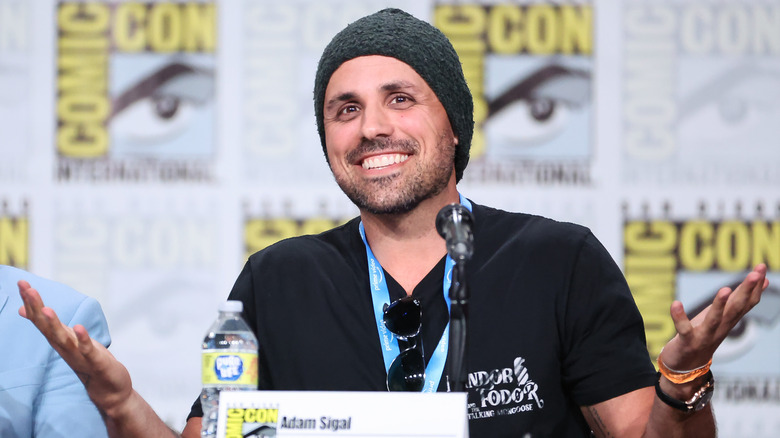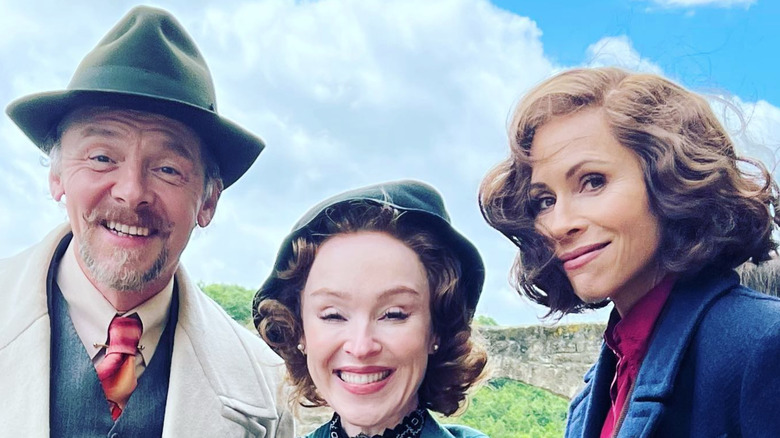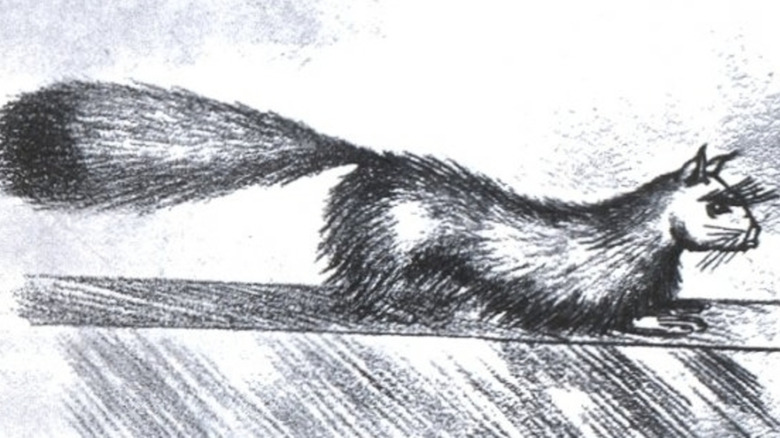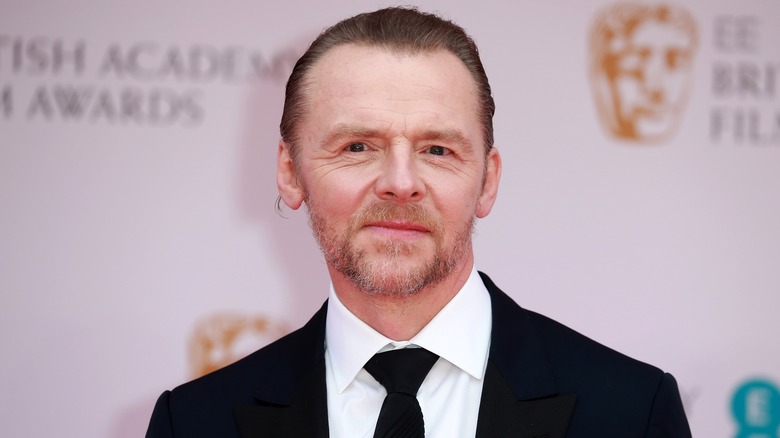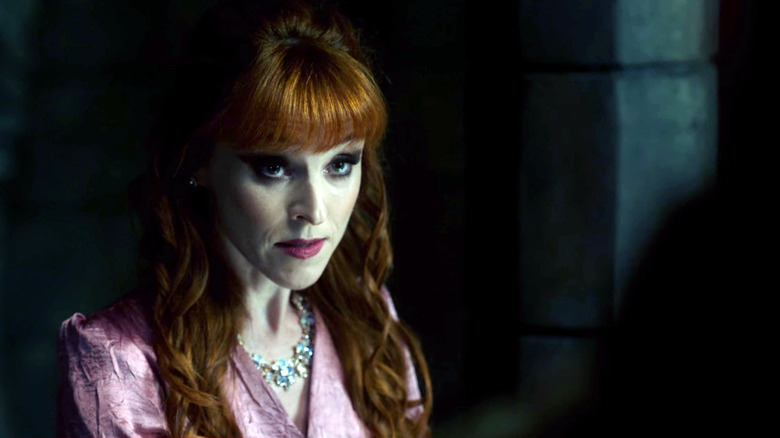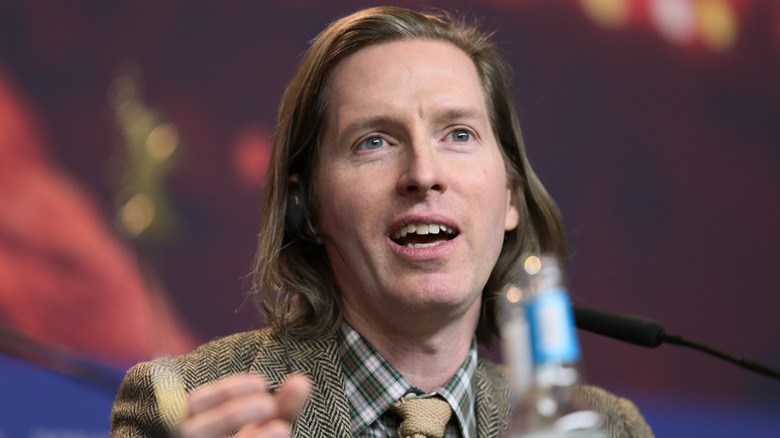Adam Sigal And Ruth Connell Preview Nandor Fodor And The Talking Mongoose - Exclusive Interview
To put it mildly, the story of Gef the Talking Mongoose is a very odd tale. According to AV Club, Gef (pronounced like Jeff) was a talkative member of the animal kingdom who became all the rage back in 1930s-era England. Although he appeared to communicate almost exclusively with a single family living on the Isle of Man, word of Gef's abilities quickly spread across the globe, aided by tabloids eager to report on the ferret-like being's supposed wisdom.
Of course, it wasn't so much what Gef was saying that was cause for concern. Although Gef's musings were also somewhat strange, most people expressed concern over the mere idea that a mongoose was capable of vocalization at all. Upon hearing the fantastical claims, a number of paranormal investigators began to research the incident. Per the Fortean Times, Nandor Fodor, a parapsychologist who sought to explain paranormal events via the subconscious mind, was one of the more notable academics who scrutinized the Irving family's claims during this period.
If you think that sounds like it should be a movie, you'll be delighted to learn that Legion M greenlit a project based on the story back in May (via Deadline). The upcoming film, which will star Simon Pegg and is titled "Nandor Fodor and the Talking Mongoose," is still in the middle of post-production work, having wrapped filming in June (via Instagram). Luckily, attendees at San Diego Comic-Con 2022 got an early look at the first trailer for the film.
Just before director Adam Sigal and actress Ruth Connell took part in the film's panel, the duo sat down with Looper for a chat about the process of making the movie. During our interview, we covered everything from the real-life origins of the wacky adventure to Sigal's unique approach to telling a fun tale based on true events.
Adam Sigal discovered this story on the radio
Adam, can you tell me a little bit about how you came across such a uniquely bizarre story?
Adam Sigal: It is very bizarre. I first heard about this about 10 years ago completely randomly on a radio show where they were talking about the birthdays of dead people, and they mentioned this was the birthday of Nandor Fodor, who was the father of modern parapsychology, and his most famous case was the talking mongoose, Gef. And I was like, "What? What did he just say?" Then I started Googling and researching and reading and knew at that point that I was going to write this, and as I made other films, would talk to people randomly, and they said, "What are you doing?" And I said, "I'm going to do this talking mongoose movie at some point. It's coming."
Where did you turn for research?
Sigal: There's a book that Nandor wrote called "Between Two Worlds," and there's a chapter in it about this experience, and there's a lot of other random references to this. There was a journal from Dr. Harry Price, who was the predecessor who went out to the Irving farmhouse. I researched that and included a little bit of that actually in the film. So wherever I could find it. And now there's more books out there.
Ruth Connell: Yeah, there's quite a few articles online now, and there's actually a radio station on the Isle of Man, where it's set, called Gef the Talking Mongoose.
Ruth, can you tell me how you first got involved in this project?
Connell: I got sent the audition sites, and I was leaving London. I was in a hotel room, and I balanced my phone up against the window ledge. There was a scene with a cup of tea, so I used the cup of tea from my hotel room. [As] I was saying to Adam, I didn't have to think about it. When something jumps off the page, you do it. When I was offered it, I said yes. That was before I knew Simon Pegg was playing Nandor, or Minnie Driver, or anybody else. I thought it was terrific. And the casting director happened to be a "Supernatural" fan, so sometimes you need something to bring things together.
Nandor Fodor is a movie based on history, but it definitely isn't a biopic
Ruth, how do you approach playing someone who was real?
Connell: It's tricky because it's not a biopic. However, I quite like my research, and I got quite into it. I went to the Isle of Man and stood on the land where they would've stood, and I looked at pictures of this lady. She was quite an unusual lady that I'm playing, Mrs. Irving. I think some of it could've been really real for her. She had this black choker on in these photographs that was part of what women used to wear when they were in a spiritualist church. And we do have Houdini in the movie. That was around after the First World War. I take all that quite seriously, and then the scenes that were written are quite comedic, and I'm like, "How do I marry this woman who people were scared of?" They thought she might be a little bit of a witch. She was quite happy for people to be scared of her, but then she's written a bit psychotically.
Sigal: You played it perfectly.
Connell: I tried to have fun. But Tim Downie, Jessica [Balmer], and I had quite serious conversations about how real this phenomenon might have been for them. Did they know they were in a ruse? Or did they believe their own press?
On that same note, Adam, how do you approach writing something that's meant as a dark comedy but also is based on some sense of reality?
Sigal: This is funny. Strangely, my biggest influence when it comes to a biopic is "Inglourious Basterds," the reason being I don't care about the real events. My purpose in writing this was not to chronicle in a documentary-style fashion what happened. I don't care. I had a very specific message that I wanted to convey with this, with regard to religion and cynicism and faith and how those relate to happiness. That was my message, and that was actually when I decided to write the script. I took the actual events that occurred, and I included the ones that I felt would help to portray my message the best, and I added a character.
The character that Minnie plays was a made-up character, [as is] a character named Erol that is played by this amazing actor Gary Beadle. I created those to serve the story because for me, the most important thing was to tell an interesting story that was entertaining and that would convey the message that I wanted rather than to slavishly follow the exact events, interesting as they were. And they're awesome, and I included a lot of it. I would say probably 75% of the film is actually based on events from Nandor's book or from the journals.
Was Gef the Talking Mongoose actually real?
One part of the appeal of the story is the inherent mystery of it all. You can imagine it, but it also is so fantastical. I was wondering, without spoiling anything, should viewers expect to find a definitive answer? Or is this more of an idea where it's left ambiguous?
Sigal: That's a really good question.
Connell: I thought [about] that all the way through reading it, all the time playing it, what way it was going, because it kind of goes one way, [then] another way, [then] another way, [then] another way.
Sigal: This is such a cop-out answer. I would love people to get from it what they should get from it. From that perspective, yes, the final scene in the film actually does portray the answer to that question, I would say, but in a way that I think could be interpreted however you want. Again, the underlying subtext of this film is very much about religion. It's about how people buy in, and faith and what a massive part that plays, and other people telling you how you should feel about something, and other people believing in it and you getting caught up in that.
Connell: The truth is, it's never actually been completely proven or disproven. I know, because I'm completely like, "If you believe the Irvings are ... it's all real." The daughter — until the day she died, she never recanted anything she said about it.
Sigal: The reason why I chose Nandor as the guy, the real Nandor Fodor, is Nandor, he was a parapsychologist, and this is a very niche area of research. He was a ghost hunter, but he himself had zero belief in the supernatural. He was interested in what trauma people experienced, or almost mental illness that they suffered from, that caused them to project these things.
So if you extrapolate that to the story, and in the opening scene he talks about, "Is Gef real? Or not?" If you're sitting there and you see Gef there, standing there, is he real or not? Well, he doesn't see him; I don't see him; she doesn't see him. Okay, he's real to you, though. You see him there, so is he real or not? Depends who you ask.
Simon Pegg combines comedy and drama in just the way Sigal was after
Ruth, what was it like working with Simon Pegg?
Connell: It was awesome. He's a terrific leading man. He sets such a lovely tone. I had gone to Isle of Man and did a couple videos from Isle of Man, and the wind — you can't really hear what I'm saying. So when I first saw him in the makeup and hair trailer, he was like, "You went to the Isle of Man?" He couldn't believe that I had done that. We hit it off quite quickly. He's married to a Scottish woman, so he gets it. He understands the vibe.
Sigal: That's amazing. I love that.
When I heard the name of this project and then saw Simon Pegg attached to it, my first thought was, "Oh, this sounds like a role Simon Pegg might play." I was curious — what convinced you that he was the perfect actor for this type of movie?
Sigal: All I really wanted for this actor to play this role, the most important thing to me, was somebody who could nail comedy, a really great comedic actor, but who could also do legitimately convincing drama, someone who could move between the two. I thought a lot about "Shaun of the Dead" and films like that, where he's playing comedy. For sure, it's hilarious, but he can also turn it on right away and do the emotion and show the dramatic side. So when we started the very early-on casting, his name was one of the first that I considered. I was like, "Oh my God, yeah." He's also great [as a] fish out of water in a small town with a bunch of weirdos. It's hard to find a better actor for that sort of scenario than Simon, so it was a perfect—
Connell: And he loved the accent. He always wanted to do the accent, which is kind of American-Hungarian, which is so weird.
Sigal: After our first conversation, he identified very strongly with the character and with Nandor's mentality and his approach to life and everything. Simon was like, "This is me. I think I would be the right person." I was like, "Dude, you don't need to convince me. I want you to do this. This would be fantastic." And then he was.
Ruth Connell is totally open to appearing on The Winchesters
What about working with Christopher Lloyd?
Sigal: It was incredible. Christopher is a legend and is so cool. You never know with an older actor who's a legend if they're going to be grumpy or not. He was so nice and so happy to be there and excited and really loved the script, and I could tell that he wanted to make me happy. He was like, "Did you like my performance?" And I'm like, "You're Christopher Lloyd, man. Did you like my directing?" because he's just so good, and off camera too, absolutely lovely. He's not the type who doesn't want to talk or doesn't want to talk about his career. You can ask him about "Back to the Future," and he'll sit there and tell you stories about everything. He's so cool.
Connell: With my accent, he doesn't hear especially as clearly, but if you commit to really asking him something, then he really goes. We actually were laughing to the point of crying at one point. He was telling us stories from "One Flew Over the Cuckoo's Nest." At the very end, he came up and shook my hand and said, "so lovely to work with you." Just the real deal.
Sigal: Lovely guy. And his performance is awesome.
Connell: It's hilarious.
Sigal: You see him, and he's the Doc. It's the role he's playing. You hear the voice and you get chills. It's so cool.
Ruth, I have to ask this for our readers who are "Supernatural" fans. Given the fact that "The Winchesters" is premiering in the fall, is there any chance you would ever be up to reprise your role as Rowena MacLeod in that franchise?
Connell: I have pitched it flat out to Jensen [Ackles] in the green room and Danneel [Ackles] over a drink. There's no reason why not. She would've been alive; she just maybe would've wiped their memories afterwards so they couldn't remember it for future generations. I've worked it out, so it's up to the writers now to work it out and put me in it. I'm open to it.
Wes Anderson is one of the film's biggest influences
Adam, you described this project as Wes Anderson meets Tim Burton meets the Cohen brothers. Can you elaborate a little bit on that, on what pieces you're pulling from and where?
Sigal: Definitely the shooting style. I'll just say straight up, it was heavily influenced by Wes Anderson. I love the way he moves the camera. I love the way he blocks. I love the way he lights. I love the way he uses the camera movements and movements of the actors as a comedic tool in itself. It's such a great cinematic way. And this is such a bizarre and comedic story that definitely I was heavily influenced by him in the way that I introduced characters and moved the camera around.
The reason I cited the Cohen brothers as an influence is, my favorite thing about the Cohen brothers is that every character in their films, even if they just have one line, is so important. Every time I see a character in a Cohen brothers film and they leave, I'm like, "I wonder what that guy's going off to do in this Cohen universe." I wanted to do that and make sure there were no throwaway characters in this who were just there to serve the story, but they were characters in themselves. My hope is that those would be the influences that if people were like, "This reminded me of Wes Anderson," I'd be like, "That's great." Those are awesome influences.
Those are all the questions I had for you. Was there anything I didn't ask that I should have?
Sigal: The only thing I would say is that we're really looking at a Q1 release next year. We're editing, and I have a delivery date of December 1, which I should hit. And then the plan would be to have it out there early next year.
"Nandor Fodor and the Talking Mongoose" is expected for release in 2023.
This interview has been edited for clarity.
